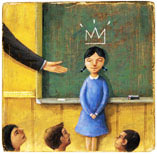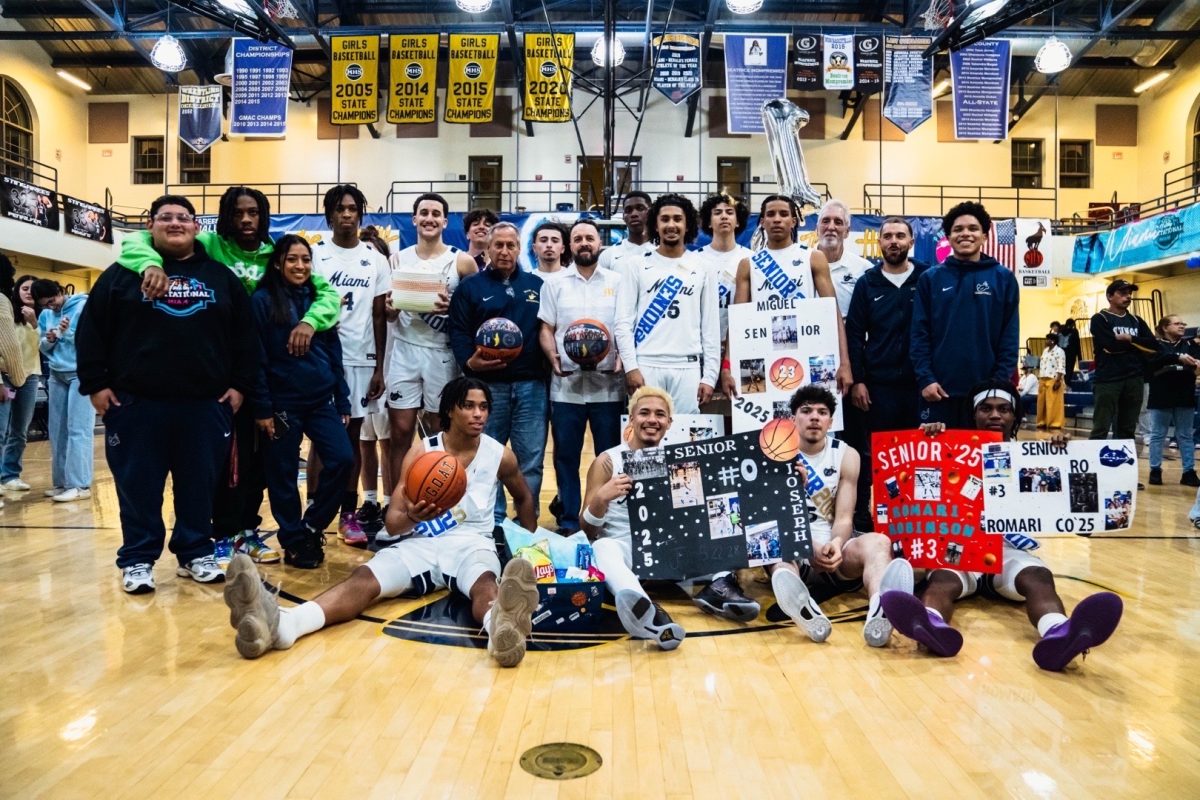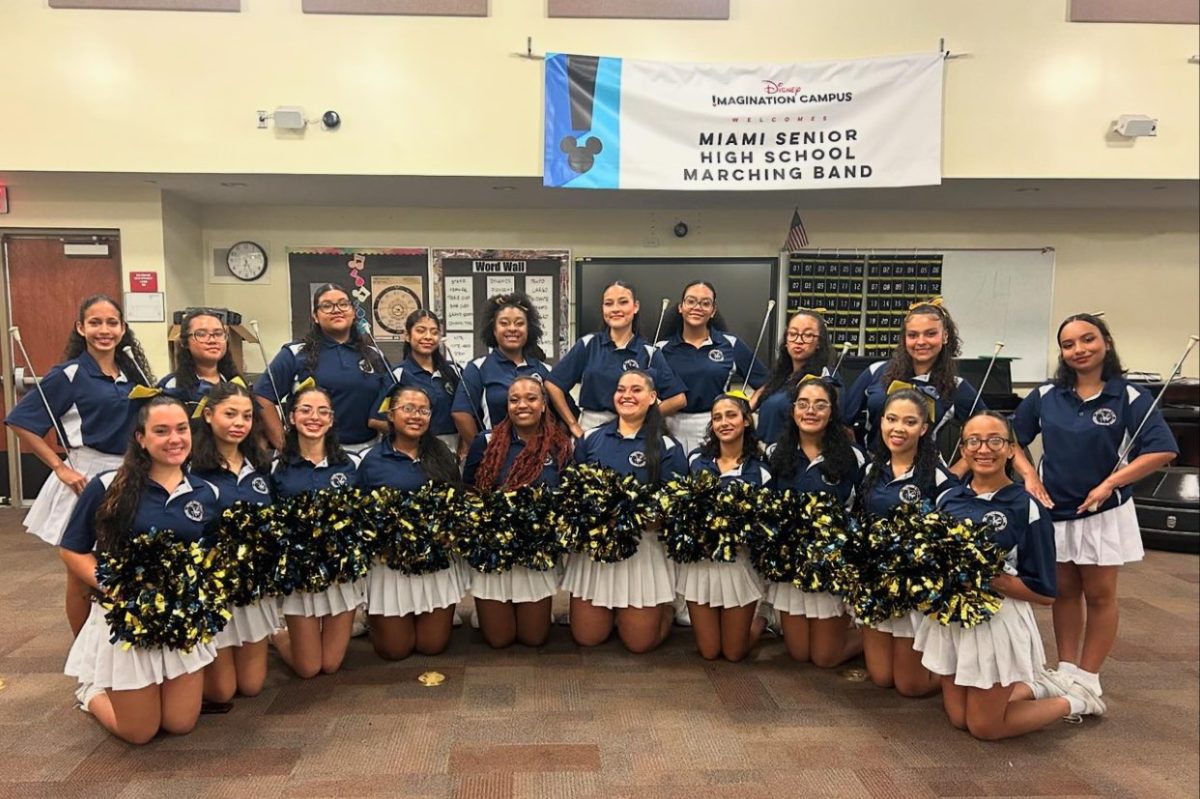Our Favorite Stings

Source: http://www.yokibu.com/communityspeak/2014/classroom-favouritism-how-is-this-affecting-my-child/
March 12, 2018
Plenty of people talk about it amongst themselves; however, nobody addresses it directly. Favoritism by teachers is seen among students as a big issue. Though some do not see is as bias rather as a reward for hard work, others claim that it is unfair and should finally be talked about.
Does favoritism exist at Miami High?
Some students can easily point out examples of favoritism at Miami High. Mingli Yactayo, a senior, states that in her classrooms, “There are specific students who have leadership positions that are able to
skip classes.”Senior class officer Britney Alpizar agrees, saying that as a student officer, teachers and administrators “become lenient because of the relationship that they have with them,” and therefore they do not always get reprimanded.
On top of that, senior Nelly Alvarado says that it is not fair how there are students who do not follow the rules, yet do not get penalized because they get along with the teachers.
SGA Treasurer Brianna Rodgers has seen students continually mess up in really big ways but “are forgiven because of connections.” She, along with a large portion of the Stingtown population, feels that “people forget that school relationships aren’t family” and “people should keep relationships professional.”
Twelfth grade student Marlon Banegas notices that teachers tend to give the most attention to students who often participate. While this behavior makes sense, it can be the cause for other students “to become discouraged and less likely to do well in class.”
Some Students Admit to Being Favored
Several students confess that they have received favored treatment from their teachers. Senior Elizabeth Astacio said that there were times when teachers allowed her to leave class early so she could continue with her SGA officer duties.
Adalain Sans, a twelfth grade student, comments that she is “often treated differently in class as the favored student” because of her work ethic. However, she adds that she “sometimes [feels] bad for the other students because it is unfair at the end of the day.”
What a lot of students might not see is that teachers often expect more of the favored students in the classroom because they have a leadership position. Senior Kelin Escobar states how people “assume things about [her] for being active and known,” but that she “still [has] to work hard.”
Do Administrators Do It?
Some claim that there are even administrators who show bias to certain kids. English teacher Ms. Guerra notices the difference in treatment between a normal student and an athlete. She says that “if a normal student got into a fight, they would get kicked out,” yet “if a football player or a basketball player did it, the consequences wouldn’t be as severe.”
Brianna Rodgers agrees, noticing that athletes get special treatment because they have a chance to leave the inner city and excel in their sport. However, she points out that this is usually seen only with male athletes, “whereas young women athletes are expected to do well inside and outside the classroom.”
Several people expressed how it was unfair that there were some students who went on the 2017 junior college trip that did not deserve to go. Mingli and Marlon claim how even though only the top 50 students with the highest GPAs of the class were supposed to go, they saw several that did not meet those requirements. However, because those students had a good relationship with administration, they were allowed to participate. Marlon also believes that “students who are related to members of the administration and teaching staff do get special treatment.”
SGA Treasurer Brianna Rodgers acknowledges that “administrators are more lenient with student leaders and expect them to miss class and skip out on responsibilities because they trust them more,” but she adds that student leaders are expected to “always be on top of their game” because of their position.
Yet, Class of 2018 VP Britney Alpizar states that the administration is not as lenient as others may think. She recalls an incident when a Class of 2018 board member was wearing ripped jeans in the activities office, and, “they were immediately told to leave.”
What are school officials’ opinions on favoritism?
When asked if they saw favoritism in the school, school officials had mixed responses. Honoria advisor Mr. Chaine responded, “Everybody has the same access to things in school, but some people just like to put in more time.”
Additionally, Mr. Flores, who teaches weight training, stated how favoritism is seen based on the perspective through which it is looked at. Students who do not actively engage with him in class and see him help other students may interpret his actions for bias. However, he does admit that individuals who excel in areas such as sports or academics are “given more leeway and attention than regular students.”
Contrary to what students say, many teachers voiced that they treat all of their students equally. Biology teacher Ms. G states that she does “try to be as fair as possible.”
What does Miami High think about it?
Everyone can agree that favoritism is present not only at school, but also in the real world. Adalain Sans claims that “favoritism is everywhere” and that “it’s human nature to choose and pick favorites.” Ms. Guerra admits that “favoritism might be unfair, but it’s a fact of life.”






Nately majewskib • Mar 21, 2018 at 1:26 pm
I found that this topic is very relevant and should be addressed more.
Anonymous • Mar 20, 2018 at 10:15 pm
DR. HUECK WILL FOREVER BE IN CONTROL OF MIAMI HIGH, HE IS THE PRINCIPAL